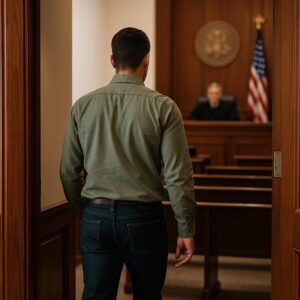
Houston is the fourth most populous city the United States. This is in large part due to the robust economy that has attracted transplants from around the country. These new Houstonians, along with business visitors for work and conventions, bring with them out of state drivers licenses. When an individual with an out of state drivers license is arrested and charged with DWI in Texas, along with the issues of fighting the DWI, comes the added headache of dealing with a possible license suspension in the person’s home state.
Interstate Driving Compact
A police officer in the State of Texas cannot legally confiscate the license of a person with an out of state license.The license is the property of the drivers home state. For example, if a person with an Arizona license is arrested for DWI in Harris County, the arresting officer does not have the authority to confiscate the drivers license. However, if the police is arresting someone with a Texas drivers license, the arresting officer, can and will confiscate the license.
Texas, along with most states, has adopted the interstate drivers license compact. If the state of Texas, through DPS or a Judge, imposes any restriction on a person charged with a DWI, the drivers home state will be aware of the restriction. Furthermore, the home state will then be able to suspend the persons drivers license, depending on what happens with the DWI in Texas. The home state can even go further and add their own restrictions or punishment.
Reports of Convictions
The interstate driver license compact is codified in the Texas Transportation Code Section 523. It details how a DWI in Texas can be reported to another and effect or suspend the out of state license:
Sec. 523.004. REPORTS OF CONVICTIONS. The licensing authority of a state shall report each conviction of a person from another state occurring within its jurisdiction to the licensing authority of the home state of the licensee. Such report shall clearly identify the person convicted; describe the violation specifying the section of the statute, code, or ordinance violated; identify the court in which action was taken; indicate whether a plea of guilty or not guilty was entered or the conviction was a result of the forfeiture of bail, bond, or other security; and include any special findings made in connection with the conviction. A conviction or judicial or administrative action of a federal or military court or tribunal may be reported to this state subject to this chapter.
Acts 1995, 74th Leg., ch. 165, Sec. 1, eff. Sept. 1, 1995. Amended by Acts 1999, 76th Leg., ch. 1257, Sec. 1, eff. Sept. 1, 1999.
Sec. 523.005. EFFECT OF CONVICTION. (a) The licensing authority in the home state, for the purpose of suspension, revocation, cancellation, denial, disqualification, or limitation of the privilege to operate a motor vehicle, shall give the same effect to the conduct reported pursuant to Section 523.004 as it would if such conduct had occurred in the home state in the case of conviction for:
(1) manslaughter or negligent homicide resulting from the operation of a motor vehicle;
(2) driving a motor vehicle while under the influence of alcoholic beverages or a narcotic to a degree which renders the driver incapable of safely driving a motor vehicle;
(3) any felony in the commission of which a motor vehicle is used; or
(4) failure to stop and render aid or information in the event of a motor vehicle accident resulting in the death or personal injury of another.
(b) As to other convictions reported pursuant to this compact, the licensing authority in the home state shall give such effect to the conduct as is provided by the laws of the home state.
(c) If the laws of a state do not provide for offenses or violations denominated or described in precisely the words employed in Subsection (a), those offenses or violations of a substantially similar nature and the laws of that state shall be understood to contain such provisions as may be necessary to ensure that full force and effect is given to this compact.
Acts 1995, 74th Leg., ch. 165, Sec. 1, eff. Sept. 1, 1995.
Contact an Experienced DWI Lawyer
DWI law in Texas is complicated. If you or someone you care about has been arrested for DWI, you need an experienced DWI attorney. Mario Madrid, a board-certified criminal lawyer and former Assistant Criminal District Attorney for the state of Texas, has the experience you need. He can provide you with the complete picture of how Texas law applies to your case.
Contact the Madrid Law Firm to schedule a free initial case evaluation:
[contact-form-7 id=”37″ title=”Contact form 1″]




